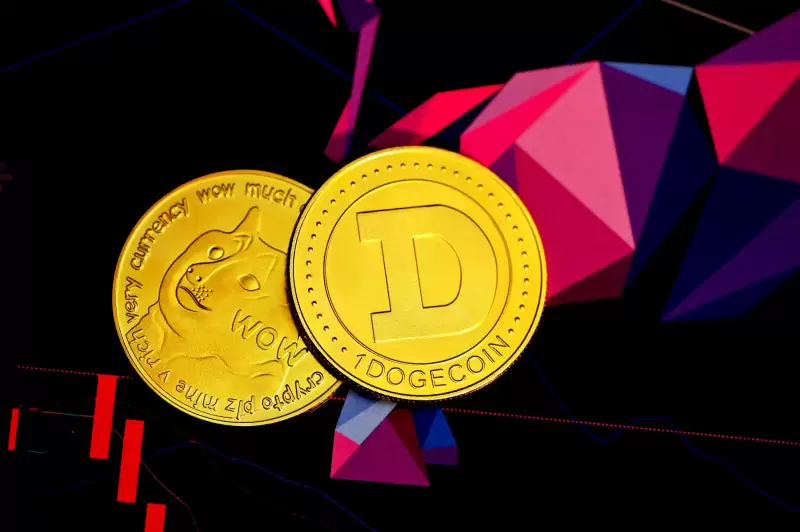 |
|
 |
|
 |
|
 |
|
 |
|
 |
|
 |
|
 |
|
 |
|
 |
|
 |
|
 |
|
 |
|
 |
|
 |
|
Cryptocurrency News Articles
Quadratic Accelerator (q/acc) Launches on Polygon zkEVM, Introducing a Novel Approach to Token Generation Events
Dec 13, 2024 at 12:15 am
By combining Augmented Bonding Curves (ABC) and Quadratic Funding (QF), q/acc aims to support fairer and more resilient token launches that move beyond short-term speculation.

Quadratic Accelerator (q/acc) has officially launched on Polygon zkEVM, introducing a novel approach to token generation events that prioritizes sustainability and community alignment. By combining Augmented Bonding Curves (ABC) and Quadratic Funding (QF), q/acc aims to support fairer and more resilient token launches that extend beyond short-term speculation.
The protocol, incubated by Giveth and supported by Commons Stack, General Magic, and Inverter Network, seeks to address long-standing challenges in token launches, including whale dominance, scams, and rapid sell-offs. q/acc's first round will run from December 6 to December 20, 2024, on Polygon’s zkEVM, a zero-knowledge rollup network designed for scalability.
“We’ve applied the quadratic funding model and supercharged it with advanced token engineering,” said Griff Green, co-founder of Giveth and one of q/acc’s architects. “This creates a massive win for all stakeholders: communities gain upside in early-stage projects, founders can effortlessly launch liquid utility tokens, and ecosystems see increased TVL (total value locked) and token utility.”
The q/acc protocol introduces a series of innovative mechanisms designed to tackle some of the most persistent issues in token generation events, such as manipulation, whale dominance, and rapid sell-offs. By prioritizing community-led funding, q/acc enables supporters to access projects at valuations as low as $2 million in market cap. This approach ensures that the broader community has the first opportunity to participate, as opposed to venture capitalists and speculators, who typically dominate early-stage fundraising.
To further ensure fairness, q/acc incorporates identity verification tools like Privado zkID and Passport XYZ. These tools place a cap on individual contributions, effectively reducing the outsized influence of whales. By creating a level playing field, the protocol encourages widespread participation and fosters a more balanced token distribution.
Moreover, q/acc addresses the issue of rug pulls—where early participants exit quickly, leaving communities vulnerable—by implementing anti-rug pull mechanisms. Token unlock schedules are structured to reward long-term supporters, with community participants receiving access to tokens months before other stakeholders. This approach builds trust and aligns the incentives of all participants, reducing the likelihood of immediate sell-offs and ensuring projects have the stability needed for growth.
Another critical challenge q/acc seeks to resolve is the lack of liquidity that often hampers token ecosystems. Instead of distributing traditional grants, q/acc channels Polygon’s equity-free funding directly into bonding curves. This method bootstraps liquidity pools, providing immediate stability and protecting contributors from extreme price volatility.
Finally, the protocol mitigates the prevalence of low-quality or fraudulent projects, a common concern with traditional launchpads. Through a rigorous selection process, q/acc has accepted only 8 high-caliber projects out of more than 200 applicants for its inaugural round. This selective approach ensures that supporters are funding legitimate, well-vetted teams with promising visions, while also helping restore trust in token launch platforms.
By linking these mechanisms together, q/acc creates a cohesive solution to the token launch challenges that have plagued the blockchain space. Each feature reinforces the others, delivering a model that prioritizes community trust, stability, and long-term value creation.
q/acc's approach reflects an increasing demand for token models that align with long-term value creation. By implementing bonding curves and quadratic funding, the protocol helps early-stage projects bootstrap liquidity while rewarding community supporters.
One of the standout projects in q/acc's first round, x23, is developing AI-powered tools to improve on-chain governance. The project's inclusion highlights q/acc's focus on high-quality teams and innovative use cases within the Polygon ecosystem.
The launch also integrates Polygon’s AggLayer and zkEVM technologies, which are key components of Polygon’s scaling roadmap. The collaboration positions q/acc to leverage advanced infrastructure for decentralized applications and web3 innovations.
Token generation events have faced significant criticism for encouraging speculative behavior and failing to protect smaller investors. By combining stringent criteria with community-led funding, q/acc addresses these shortcomings and creates a model that fosters trust and alignment between projects and their communities.
The protocol's features, such as post-round price floors and guaranteed liquidity, are designed to provide stability when tokens become publicly traded. This approach contrasts with existing launchpads that often lack mechanisms to prevent immediate price volatility or exploitative exits.
Disclaimer:info@kdj.com
The information provided is not trading advice. kdj.com does not assume any responsibility for any investments made based on the information provided in this article. Cryptocurrencies are highly volatile and it is highly recommended that you invest with caution after thorough research!
If you believe that the content used on this website infringes your copyright, please contact us immediately (info@kdj.com) and we will delete it promptly.
-

-

-

-

-

-

-

-

- This launch follows a period of stagnation in meme coin trading activity on Solana
- Apr 03, 2025 at 08:45 am
- This launch follows a period of stagnation in meme coin trading activity on Solana, largely due to high-profile scandals like the disastrous launch of the LIBRA token. Despite these setbacks, the meme coin market has recently seen some stabilization in trading volumes, and Pump.fun's new lending service may help reignite interest in the space.
-

- Two Democratic lawmakers call on acting SEC Chair Mark Uyeda to preserve information regarding World Liberty Financial
- Apr 03, 2025 at 08:40 am
- In an April 2 letter, Senator Elizabeth Warren and Representative Maxine Waters — ranking members of the Senate Banking Committee and House Financial Services Committee, respectively — asked Uyeda to provide information to Congress based on Trump's ties to World Liberty Financial (WLFI).
























































